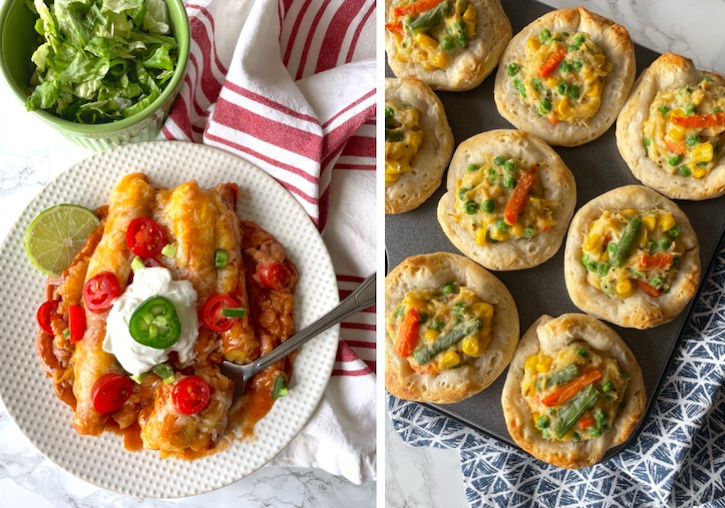Cooking is a valuable life skill that offers numerous benefits, from saving money to making healthier food choices. However, for beginners, stepping into the kitchen can feel intimidating. Understanding fundamental techniques, having the right tools, and following simple recipes can make the learning process much smoother and more enjoyable. This guide provides essential cooking tips for beginners, helping them build confidence and feel comfortable in the kitchen.
Setting Up Your Kitchen

Table of Contents
Before diving into cooking, setting up a well-equipped kitchen is essential. Having the right tools can make meal preparation more efficient and enjoyable. A sharp chef’s knife, a sturdy cutting board, and a good set of measuring cups and spoons are fundamental items that every beginner cook should have. Mixing bowls, a non-stick frying pan, a saucepan, and a baking sheet will also prove useful in everyday cooking.
Stocking up on pantry staples ensures that you always have the necessary ingredients on hand. Essentials such as rice, pasta, and oats provide a great base for many meals, while proteins like eggs, canned beans, and lentils make it easy to prepare quick and nutritious dishes. A selection of basic spices, including salt, pepper, cumin, turmeric, and chili powder, will enhance the flavor of meals without requiring complex seasoning techniques. Oils, vinegar, and condiments like soy sauce are also useful for adding depth to simple recipes.
Kitchen safety should never be overlooked. Washing hands before handling food, keeping knives sharp to prevent accidents, and ensuring that raw meats are stored separately from other ingredients are basic yet crucial safety measures. It is also important to be mindful of pot handles, keeping them turned inward to prevent spills or burns.
Understanding Cooking Basics
Learning fundamental cooking techniques makes following recipes much easier. Understanding common cooking terms can eliminate confusion when reading instructions. Sautéing, for instance, involves quickly cooking food in a small amount of oil over medium-high heat, while simmering requires gently cooking ingredients in liquid at a low temperature. Baking is done in an oven using dry heat, whereas broiling cooks food under direct high heat.
Knife skills are an essential part of cooking, and knowing how to use a knife properly can significantly improve efficiency in the kitchen. Using a rocking motion to chop vegetables and keeping fingers curled inward can prevent injuries. Additionally, different knives serve different purposes—a chef’s knife is ideal for chopping, while a paring knife is better suited for smaller, more detailed tasks.
Accurately measuring ingredients is also a crucial skill for cooking and baking. Dry ingredients should be leveled off with a flat-edged knife when using measuring cups, while liquid ingredients should be measured at eye level in a transparent cup to ensure precision.
Cooking Methods Every Beginner Should Know
Understanding basic cooking methods is key to preparing a variety of meals. Boiling, steaming, and poaching are some of the simplest techniques. Boiling is commonly used for cooking pasta, rice, and vegetables, while steaming helps retain nutrients in foods like broccoli or fish. Poaching is a gentler method ideal for eggs, chicken, and fish, resulting in tender and delicate textures.
Sautéing and stir-frying involve cooking ingredients quickly over high heat with a small amount of oil, making them ideal for preparing vegetables and meats in a short time. Baking and roasting use dry heat in an oven, with baking typically used for cakes, cookies, and bread, and roasting perfect for enhancing the flavors of meats and vegetables. Grilling and broiling are both high-heat cooking techniques, with grilling using direct flame or a grill pan and broiling applying heat from above in an oven.
Beginner-Friendly Recipes to Try

For those new to cooking, starting with simple recipes is a great way to build confidence. Breakfast options like scrambled eggs with toast, overnight oats with fruit, or a yogurt smoothie are easy to prepare and require minimal ingredients. Lunch and dinner dishes such as vegetable stir-fry with tofu or chicken, one-pot pasta with tomato sauce, and simple vegetable soup provide nutritious and satisfying meals without complex steps. When it comes to snacks and desserts, a peanut butter and banana sandwich, fresh fruit salad, or homemade chocolate chip cookies are quick and delicious options.
Common Mistakes to Avoid
Many beginner cooks make mistakes that can be easily avoided with a bit of awareness. Overcrowding the pan can prevent food from cooking evenly, resulting in soggy or undercooked dishes. Preheating the oven before baking is crucial, as failing to do so can lead to undercooked food. Cooking times should always be carefully followed, and checking the doneness of food with a thermometer can help avoid overcooking or undercooking. Another common mistake is misjudging seasoning—either adding too much or too little. Tasting food as it cooks and adjusting the seasoning gradually ensures the best flavor.
Tips for Meal Planning and Preparation
Meal planning can make cooking more efficient and stress-free. Planning meals in advance helps save time and reduces food waste. Preparing ingredients ahead of time, such as chopping vegetables or marinating proteins, can streamline the cooking process. Batch cooking is also a great strategy, allowing meals to be prepared in larger quantities and stored in the refrigerator for quick and easy reheating.
Grocery shopping plays a significant role in successful meal preparation. Sticking to a shopping list can help avoid impulse purchases, and buying pantry staples in bulk can be cost-effective. Choosing fresh, seasonal produce not only improves the flavor of dishes but also ensures better nutritional value.
Boosting Confidence in the Kitchen
Gaining confidence in the kitchen takes practice and experimentation. Trying new ingredients and flavors can make cooking more exciting and help develop a personal cooking style. Learning from mistakes is an important part of the process—every cook, no matter how experienced, encounters setbacks. Keeping notes on what works well and what doesn’t can help refine skills over time.
Knowing when to strictly follow a recipe and when to improvise is another key aspect of cooking. While baking requires precise measurements, cooking allows for more flexibility. Adjusting spices, substituting ingredients, and experimenting with different cooking techniques can make meals more enjoyable and personalized.
Conclusion
Cooking is a skill that improves with practice, and every new cook starts somewhere. By mastering the basics, experimenting with simple recipes, and learning from mistakes, anyone can develop confidence in the kitchen. Cooking should be a fun and rewarding experience, so embracing the learning process is essential. With time and practice, preparing homemade meals will become second nature. For more cooking inspiration and helpful recipes, visit IndianFoodGuide.
Also, explore delicious Indian cuisine at Himalaya Restaurant for an authentic dining experience.